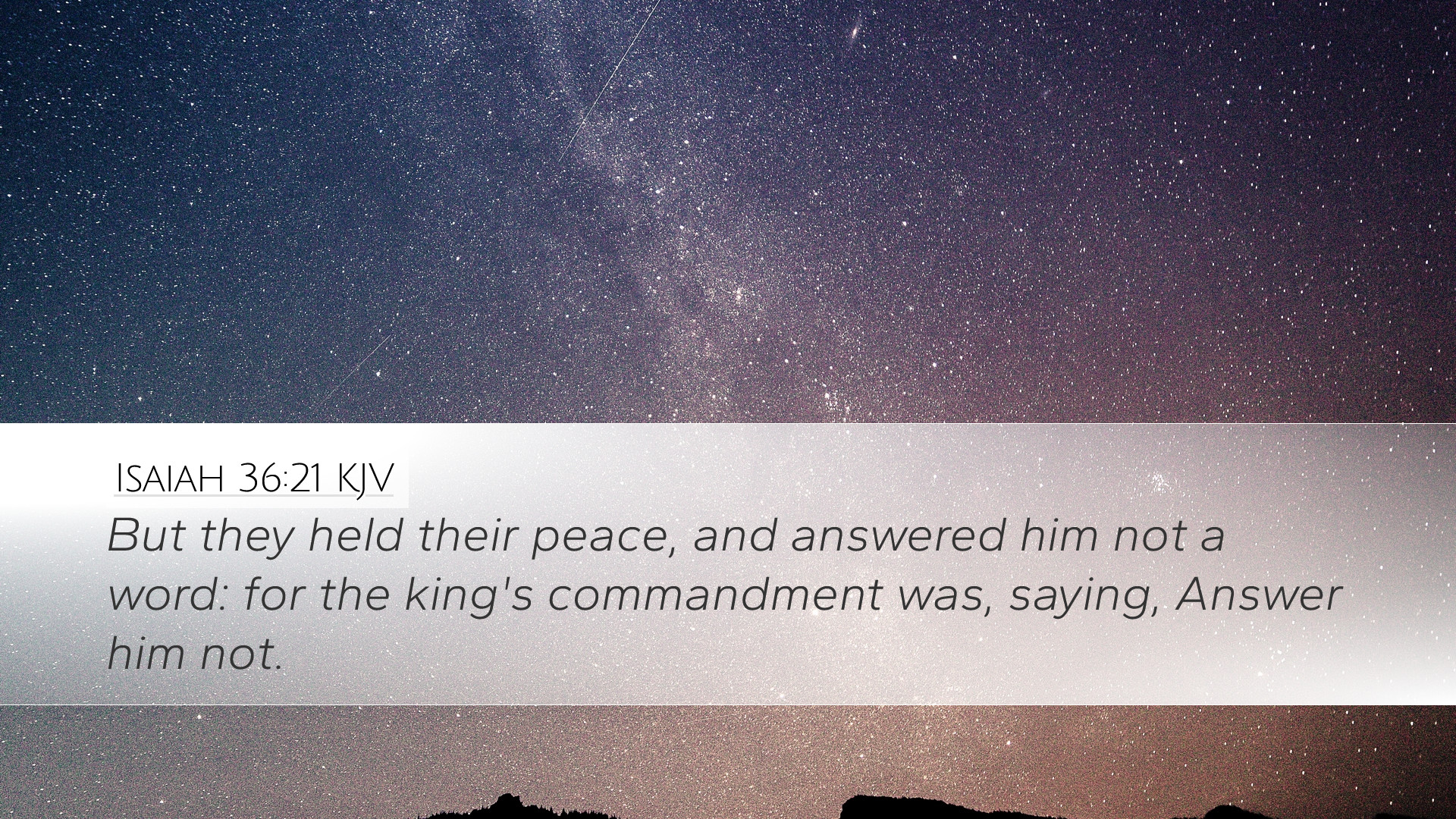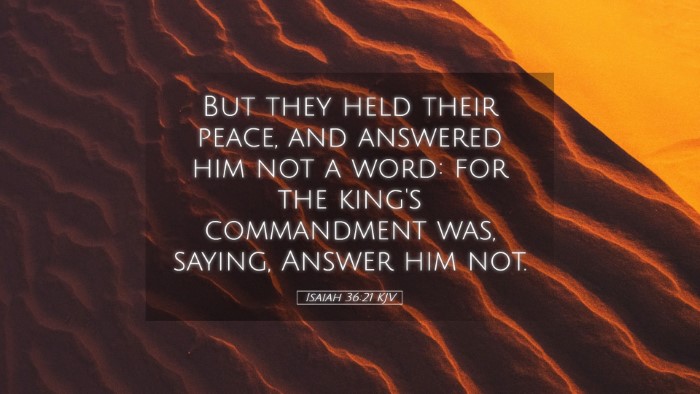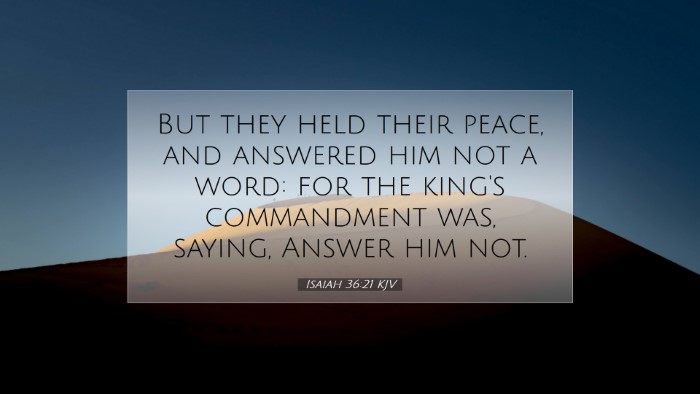Commentary on Isaiah 36:21
Isaiah 36:21 states: "But they held their peace, and answered him not a word: for the king's commandment was, saying, Answer him not." This verse serves as a pivotal moment in the narrative of King Hezekiah's struggle against the Assyrian king, Sennacherib. The silence of the representatives of Hezekiah carries profound theological and practical implications.
Contextual Background
To fully appreciate Isaiah 36:21, one must consider its context within the broader narrative of chapters 36-39. This period chronicles the Assyrian invasion of Judah, where Sennacherib, the king of Assyria, seeks to subdue Jerusalem, asserting his power and defying the God of Israel.
The historical account is enriched by the diplomatic exchanges, with Sennacherib employing psychological warfare through threats and blasphemous statements against Yahweh. The silence of the Jews in response to Sennacherib's taunts, as indicated in this verse, is a critical reflection of their faith and strategy.
Analysis of Silence
This verse highlights the deliberate choice of silence by Hezekiah's envoys, which Matthew Henry interprets as a demonstration of their faith in God. Their refusal to engage in debate with Sennacherib represents a form of spiritual resistance:
- Trust in God: By remaining silent, the ambassadors exhibited a firm trust in God's sovereignty. They recognized that their defense did not rely on eloquent speech or persuasive arguments but on divine intervention.
- Fulfillment of Command: The command from King Hezekiah was to refrain from responding, demonstrating obedience to authority, which aligns with the scriptural principle of submission to rightful leadership.
- Strategic Restraint: Adam Clarke suggests that their silence was also a tactical decision to avoid escalating the conflict or providing Sennacherib any opportunity to mock their God further.
Theological Implications
The implications of silence carry deep theological significance:
- God’s Sovereignty: The act of silence symbolizes reliance on God's control over worldly affairs. This conviction is essential for pastors and theologians as it illustrates a faith that holds firm against external pressures and challenges.
- The Role of Human Agency: This moment encourages reflection on the balance between human initiative and divine providence. While the envoys do not speak, their action of not responding is itself a meaningful engagement with the situation.
- Spiritual Warfare: The passage invites students and scholars of theology to consider the nature of spiritual warfare—a theme prevalent in Isaiah. The refusal to engage in verbal battle against the enemy illustrates the power of faith over earthly conflict.
Pastoral Application
For pastors, this text provides a rich foundation for preaching and instruction on dealing with adversity:
- Encouragement in Trials: Just as Hezekiah's representatives remained silent in the face of daunting threats, believers today are called to trust God in their personal adversities, knowing He is their defender.
- Value of Restraint: In an age where reaction is often immediate, the lesson of strategic silence offers valuable insight. Pastors can encourage congregations to consider their responses thoughtfully, trusting in God's timing.
- Faith Over Fear: The theme of fear in the face of opposition resonates throughout the passage. Pastors can cultivate a culture of courage and trust within their congregations by reflecting on this narrative.
Conclusion
Isaiah 36:21 encapsulates essential truths about faith, authority, and the nature of human responses to overwhelming odds. The decision to remain silent in the face of Sennacherib’s taunts highlights a profound trust in God’s power and a recognition of the futility of arguing with evil. As we consider this passage, may we learn to embody a faith that, in stillness, waits for the salvation and sovereignty of our God.


